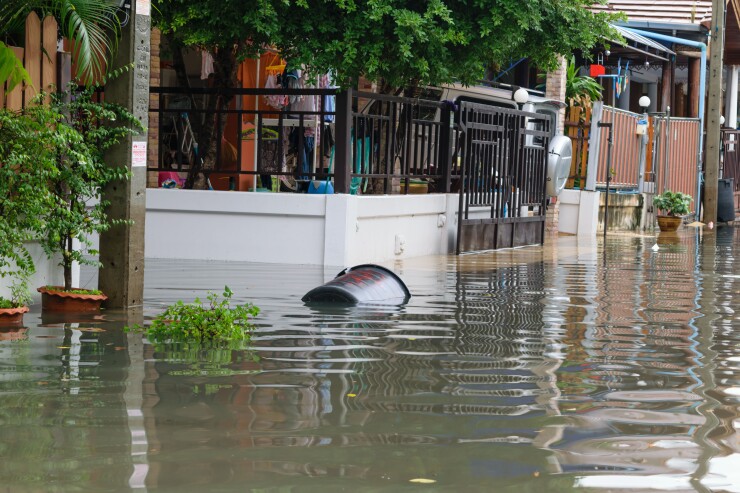As the government shutdown
Reps. Troy Carter, D-La., and Mike Ezell, R-Miss., introduced the Retroactive Renewal and Reauthorization Act to the House Monday, with hopes to backdate the reauthorization of the insurance program to Sept. 30, the day before the shutdown, and extend it until Dec. 31, 2026.
"The lapse of the National Flood Insurance Program isn't a partisan problem — it's a people problem. Families shouldn't lose their coverage or face higher premiums because of political gridlock," Carter said in a press release.
The program, which counts more than 4.7 million policies providing more than $1.3 trillion in coverage, was
Under the Federal Emergency Management Agency's Risk Rating 2.0, existing policyholders transition gradually to full-risk rates, but lapsed policies must pay those rates immediately upon reauthorization, the release said.
"This lapse now threatens the premium increase glidepath guaranteed to legacy NFIP policyholders who have played by the rules," said Michael Hecht in the release on behalf of the Coalition for Sustainable Flood Insurance.
"Our analysis of FEMA data shows that NFIP premiums under Risk Rating 2.0 are rising by over 100% on average and by at least 50% in 41 states. Reauthorizing NFIP retroactively ensures that these glidepaths are retained, thus encouraging cost-burdened Americans to maintain coverage and mitigate our nation's risk," he added.
The lapse has delayed home closings and left homeowners uninsured in the back half of hurricane season. In the second week of the shutdown, the National Association of Realtors estimated that as many as 1,400 sales per day could stall or fall through without
If Congress does not pass the bill or one similar, any new or renewed policies will only take effect on or after the date the program is reinstated. This would leave policyholders vulnerable to flood losses during that uninsured period, the release said.
"The [NFIP] is a critical lifeline for American households to avoid economic ruin from flooding disasters," said Amy Bach, executive director of United Policyholders.
"The private flood insurance industry may hold promise, but it is nowhere near ready to come close to providing the level of security the NFIP provides," she added. "It is imperative that the program be re-authorized and retroactively available to those whose policies lapsed during the shutdown so they don't end up re-rated and priced out of this important protection."






